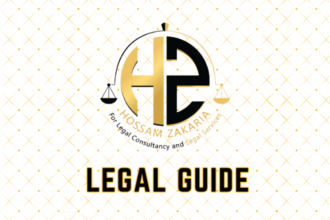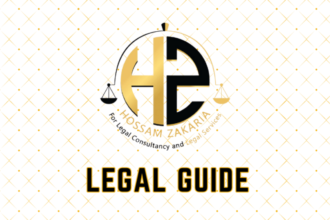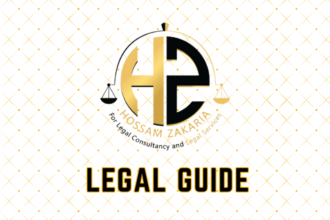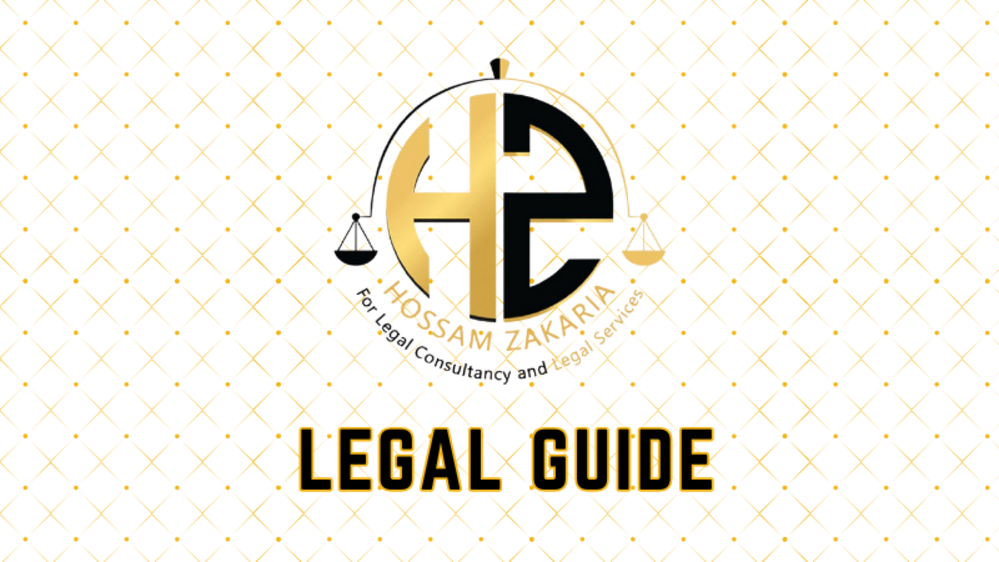Introduction: The Strategic Significance of Arbitration in the Evolving UAE Legal Landscape
In an era marked by rapid economic progress and a rising influx of cross-border commercial activities, the United Arab Emirates (UAE) has established itself as an international hub for business and innovation. As businesses navigate increasingly complex transactions, the need for efficient, reliable, and enforceable dispute resolution mechanisms becomes paramount. Arbitration has emerged as the preferred route for resolving commercial disputes in the UAE, owed to its flexibility, confidentiality, and finality.
With the enactment of Federal Law No. 6 of 2018 on Arbitration and subsequent practical refinements, culminating in important updates through 2023 and 2025, understanding the structure and enforceability of arbitration agreements and clauses has never been more critical. These reforms, along with evolving judicial interpretations, set new standards for drafting, enforcing, and challenging arbitration agreements in the UAE. For executives, legal practitioners, and HR leaders, remaining abreast of these developments is imperative—not only to ensure legal compliance but also to optimize dispute outcomes and minimize risk.
This expert guide delivers an authoritative analysis of the contemporary framework governing arbitration agreements and clauses under UAE law, focusing on the latest 2025 legal updates. Drawing on official government sources and recent case law, it provides actionable insights and sophisticated guidance tailored specifically for corporations and in-house counsel operating within or in relation to the UAE.
Table of Contents
- Understanding Arbitration in UAE Law: Foundational Perspectives
- Legal Framework Governing Arbitration: 2025 Highlights
- Key Elements of Valid Arbitration Agreements and Clauses
- Enforceability and Scope Under Federal Law No. 6 of 2018
- Navigating 2025 Updates: Recent Amendments and Practice Notes
- Comparative Analysis: Old vs. New Arbitration Law in the UAE
- Case Studies and Practical Scenarios
- Risks of Non-Compliance and Compliance Strategies
- Drafting Robust Arbitration Agreements: Practical Recommendations
- Conclusion and Forward-looking Best Practices
Understanding Arbitration in UAE Law: Foundational Perspectives
The Evolution of Arbitration in the UAE
Arbitration has deep roots in the UAE’s legal tradition, with historical reference to customary mediation methods and commercial dispute practices. However, the introduction of Federal Law No. 6 of 2018 (the “UAE Arbitration Law”), which draws on the UNCITRAL Model Law, marked a transformative step in aligning the country with international best practices. With this progression, arbitration has become the mechanism of choice for commercial contracts—from construction and infrastructure projects to joint ventures and franchising.
Why Arbitration Agreements Matter
A well-drafted arbitration agreement serves as the primary gateway to effective dispute resolution. It determines tribunal composition, defines the procedure, protects confidentiality, and (crucially) helps parties avoid the formalities, costs, and unpredictability of national courts. The precise terms of the arbitration clause can profoundly impact parties’ rights, remedies, and enforcement prospects.
Legal Framework Governing Arbitration: 2025 Highlights
Federal Law No. 6 of 2018 (UAE Arbitration Law)
Federal Law No. 6 of 2018, as published in the Official Federal Gazette, constitutes the backbone of UAE arbitration law. It codifies the essential pillars for valid arbitration agreements, the conduct of proceedings, and the enforcement or annulment of arbitral awards. Cabinet Resolution No. 57 of 2018 further clarifies certain procedures, including interactions with local courts and the appointment of arbitrators.
Supplementary Legislation and Institutional Rules
The UAE Arbitration Law operates alongside other key statutes and regulatory frameworks:
- Federal Decree-Law No. 42 of 2022 on Civil Procedure (updated in 2025)
- Dubai International Arbitration Centre (DIAC) Rules 2022 (with anticipated 2025 revisions)
- Abu Dhabi Commercial Conciliation and Arbitration Centre (ADCCAC) Rules
- Sector-specific guidelines (notably in construction, oil & gas, and employment disputes)
The UAE’s International Commitments
Notably, the UAE acceded to the New York Convention on the Recognition and Enforcement of Foreign Arbitral Awards (1958), further enhancing the enforceability of awards both domestically and abroad.
Key Elements of Valid Arbitration Agreements and Clauses
Mandatory Components Under Article 7 of Federal Law No. 6 of 2018
For an arbitration agreement—including a specific clause within a broader contract—to be valid under UAE law, several requirements must be satisfied:
- Written Form: The agreement must be in writing, either as a standalone contract or as a clause within a primary agreement.
- Clear Intention: Parties must unequivocally express their intention to submit existing or future disputes to arbitration.
- Capacity: Parties must possess legal capacity, and any party entering on behalf of a corporate entity must demonstrate valid authorization (Article 4(1)).
- Definiteness: The scope of the arbitration must be defined (whether for all disputes arising under the contract or limited to specific issues).
- Signatures: Digital signatures and exchanges through electronic correspondence now explicitly satisfy the writing requirement under the 2021 and 2025 amendments.
Best Practice Tip: Attach a copy of the arbitration rules agreed upon (e.g., DIAC or ICC) to the contract, and ensure all amendments are contemporaneously documented.
Enforceability and Scope Under Federal Law No. 6 of 2018
The Principle of Separability
UAE law upholds the doctrine of separability (Article 6): An arbitration clause remains valid even if the main contract is found void, unless the defect directly affects the arbitration agreement itself. This ensures continuity in dispute resolution irrespective of challenges to the underlying agreement.
Competence-Competence
Arbitral tribunals are empowered to rule on their own jurisdiction, including challenges to the existence or validity of the arbitration agreement. This autonomy is reinforced by the judiciary’s limited (yet crucial) supervisory role, mainly in cases of manifest invalidity or incapacity.
Enforcement of Awards
Arbitral awards issued under a valid agreement have the same executory force as a judicial verdict. The winning party can seek recognition and enforcement directly through the local courts (Article 52), with limited grounds for annulment—primarily procedural irregularities or public policy violations.
Navigating 2025 Updates: Recent Amendments and Practice Notes
Key Legislative Changes Coming into Force in 2025
The 2025 updates, as reflected in the UAE Federal Legal Gazette and reinforced by new Ministry of Justice Circulars, address critical feedback from the arbitration community and international investors. The major developments include:
- E-Signatures and Meetings: Procedural law now unequivocally recognizes e-signatures, e-mail communications, and fully virtual hearings (Article 25, as revised).
- Expanded Arbitrability: Finance, competition, and certain regulatory matters, previously excluded, are now potentially arbitrable subject to specific consent and sectoral oversight.
- Deadline Clarifications: Strict timelines for challenging arbitral awards have been codified (now 45 days from notification), minimizing tactical delays.
- Interim Measures: Arbitrators’ powers to grant interim or precautionary measures now expressly include orders affecting third parties, akin to court powers (Article 21 amendments).
- Costs and Fees Transparency: Mandatory disclosure of arbitrator fees and institutional costs prior to tribunal appointment.
Highlights from 2022—2025 Practice
Ministry Advisory No. 15/2025 reiterates the recognition of arbitration clauses in government contracts, with exceptions only for matters expressly reserved for court jurisdiction (e.g., criminal disputes, certain employment matters).
Recommended Visual: Compliance Checklist Table
| Drafting Requirement | 2025 Law Status | Consultancy Guidance |
|---|---|---|
| Written form (including digital signature) | Explicitly recognized | Ensure e-signatures meet UAE digital law technical standards |
| Capacity and authority of signatories | Clarified | Document all corporate authorizations and board approvals |
| Arbitrability of subject matter | Expanded in 2025 | Verify sectoral regulations before inclusion |
| Timeframes for challenges | Strictly codified | Communicate deadlines to all stakeholders immediately after award |
Comparative Analysis: Old vs. New Arbitration Law in the UAE
Side-by-Side Overview
| Provision | Before 2018/2022 | 2025 Framework |
|---|---|---|
| Form of Arbitration Agreement | Strict writing required; ambiguity over digital | Explicit recognition of digital and e-signatures |
| Scope of Arbitrable Matters | Certain subject matters excluded | Broader arbitrability with sectoral exceptions |
| Role of Local Courts | Potential for greater judicial intervention | Enhanced tribunal autonomy; limited court oversight |
| Timeline for Award Challenges | Less specific; delays possible | 45 days strictly enforced from award notification |
| Interim Measures | Discretionary, less defined | Codified tribunal powers over interim and third-party measures |
| Costs and Fees | Opaque in some institutions | Mandatory pre-appointment disclosure |
Consultancy Takeaway
The 2025 regime offers greater clarity, technological integration, and global alignment, but imposes tighter compliance obligations and shorter procedural deadlines.
Case Studies and Practical Scenarios
Case Study 1: A Cross-Border Construction Contract
Scenario: A UAE-based developer and a multinational construction firm sign a contract that references DIAC arbitration for all disputes “except regulatory breaches.” Disputes arise over project delays and penalty clauses.
- Because the agreement is in writing, with all parties’ properly documented digital signatures and explicit reference to DIAC rules, UAE courts recognize the clause as valid under the 2025 law.
- If either party contests arbitrability, the tribunal has initial jurisdiction under the competence-competence doctrine, with courts only interfering in exceptional cases.
- Parties must file any challenge to an award within the new 45-day period; otherwise, the award becomes final and enforceable.
Case Study 2: Employment Contract with Arbitration Clause
Scenario: A senior executive’s employment contract contains a bespoke arbitration clause. A dispute arises over termination benefits, and the executive wishes to pursue a claim.
- The clause is deemed valid provided it is in writing and does not relate to statutory entitlements that are on the list of non-arbitrable matters as declared in recent Ministerial Circulars.
- The 2025 updates ensure that, so long as sectoral approval is obtained (where required), even sensitive financial claims may be subject to arbitration.
Hypothetical Pitfall: Omitted Board Authorization
In another example, an M&A agreement includes an arbitration clause, but the signatory for one corporate party lacked due authorization. Under Article 4(1), and as reaffirmed in 2025 guidelines, the clause may be declared unenforceable—potentially exposing the company to lengthy court proceedings and undermining negotiated dispute resolution expectations.
Risks of Non-Compliance and Compliance Strategies
Risks and Consequences
Improperly drafted or non-compliant arbitration clauses carry significant risks, including:
- Loss of access to arbitration, resulting in local court jurisdiction (often less predictable and more public).
- Annulment of arbitral awards due to procedural irregularities or scope errors.
- Delays and added costs in enforcing or contesting awards.
- Regulatory scrutiny and reputational damage where arbitration is attempted in non-permissible sectors.
Strategic Compliance Approaches
- Adopt model arbitration clauses where suitable, but avoid generic templates—tailor to transaction specifics and applicable UAE law requirements.
- Maintain up-to-date records of signatory authority and board approvals for each agreement.
- Conduct sectoral checks, consulting with specialized counsel to clarify arbitrability and regulatory consent where required.
- Plan for enforcement at the drafting stage, precisely identifying forum, applicable law, procedure, and scope.
- Monitor legal developments—especially sectoral exceptions and local judicial interpretations—regularly through official channels (Ministry of Justice, Federal Legal Gazette).
Recommended Visual: Process Flow Diagram
We recommend including a visual that maps the process from arbitration clause drafting through dispute referral, tribunal formation, award issuance, challenge, and enforcement—highlighting deadlines and decision points under UAE law 2025 updates.
Drafting Robust Arbitration Agreements: Practical Recommendations
Checklist for a Future-Proof Arbitration Clause in the UAE (2025)
- Specify Arbitration Institution and Rules: State whether DIAC, ADCCAC, ICC, or other body governs, and attach operative rules to the contract.
- Choose Seat and Language: Agree on the legal seat (e.g., Dubai, Abu Dhabi) and official language of proceedings.
- Define Scope: Use clear language—e.g., “Any dispute arising out of or in connection with this contract…” Ensure exceptions are explicit.
- Establish Tribunal Structure: Decide on the number and qualifications of arbitrators (e.g., 1 or 3; legal or industry backgrounds).
- Agree on Interim Measures: Include express powers for granting interim or urgent relief if desired.
- Contingency for Non-Compliance: Outline consequences for refusal to participate, including default appointment or summary award.
- Electronic Communications: Authorize (where desired) all procedural correspondence by e-mail or secure platforms.
- Review by UAE-Arbitration Specialist: As legal interpretations continue to evolve, have each draft reviewed for compliance with the latest Ministerial or Cabinet guidance.
Sample Wording (2025 Compliant)
“Any dispute, controversy, or claim arising out of or relating to this contract, including its formation, interpretation, performance, breach, or termination, shall be finally resolved by arbitration under the [DIAC] Rules, as in force at the date of this agreement. The seat of arbitration shall be [Dubai/Abu Dhabi], United Arab Emirates. The language of the arbitration shall be [English/Arabic]. The tribunal shall consist of [one/three] arbitrator(s). The parties agree that this clause may be entered into and evidenced by electronic means. All interim and final awards shall be enforceable in accordance with UAE Federal Law No. 6 of 2018 and its subsequent amendments.”
Conclusion and Forward-looking Best Practices
With the introduction of the 2025 legislative and procedural updates, the UAE’s arbitration landscape has become more robust, business-friendly, and internationally harmonized. For organizations, this shift provides unmatched opportunities for confidential, efficient, and tailored dispute resolution—but only where arbitration agreements are meticulously drafted and regularly updated to reflect new requirements.
Looking ahead, it is expected that regulatory and industry guidance will continue to refine the boundaries of arbitrability and enforcement, encouraging even broader adoption of arbitration—especially as digital contracting and global operations intensify in the UAE. Corporate counsel and executives are advised to:
- Engage in frequent contract audits, updating legacy agreements for 2025 compatibility.
- Monitor statutory changes, practice notes, and court judgments that could affect future disputes.
- Invest in specialized training for in-house legal and HR teams on the technical aspects of arbitration practice in the UAE.
By embracing a proactive and strategic approach to arbitration agreements, organizations operating in the UAE can significantly mitigate legal risk, reduce time-to-resolution, and optimize cross-border business relationships—turning what was once a reactive process into a core element of their risk management and corporate governance frameworks.
For tailored advice on arbitration clause compliance, or to review your existing contracts for UAE law 2025 updates, connect with our legal consultancy team today.



